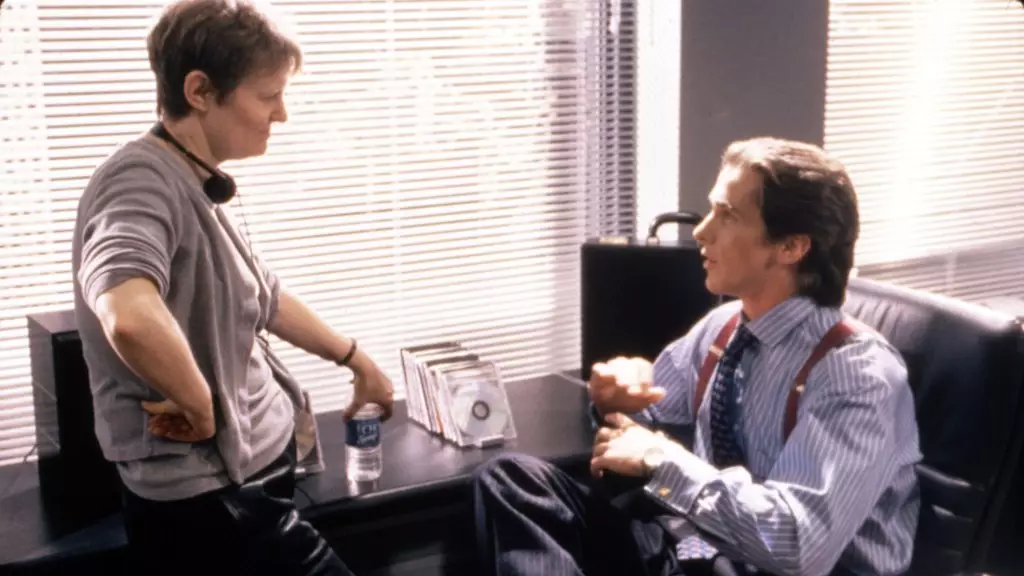The 25th anniversary of Mary Harron’s iconic film *American Psycho* offers a compelling lens through which to evaluate not only the movie’s cultural significance but also the society that birthed it. In recent conversations, Harron revisited the darkly satirical essence of the film amid the stark political landscape of the United States, particularly in the context of Donald Trump’s second presidency. The film, often misunderstood, possesses a critical edge that still echoes in today’s sociopolitical climate. Harron’s remarks highlight a fundamental truth: the film’s examination of consumerism, masculinity, and moral decay is more relevant now than ever.
The film’s protagonist, Patrick Bateman—portrayed with chilling brilliance by Christian Bale—has often been idolized by a troubling demographic that overlooks the parody embedded in his character. As Harron stated, *American Psycho* was designed as a probe into a “predatory society”—one that, shockingly, has only worsened since the film’s debut. With Escalating economic disparity and the former presidency’s blatant embrace of racism and white supremacy, it becomes evident that Harron’s narrative foresaw an era of increased societal dysfunction rather than simply reflecting it.
The Misinterpretation of Satire
Harron expressed her confusion over the misinterpretation of the film’s satire, urging viewers to recognize the absurdity inherent in Bateman’s character. Contrary to the appropriation of the film’s aesthetic by “Wall Street bros,” those who fail to grasp its true essence miss the sharply critical undertones woven into the narrative. Harron’s partnership with writer Guinevere Turner, who brings her perspective as a gay woman, adds layers to the screenplay that critique traditional notions of masculinity.
The film illustrates not only Bateman’s superficial obsessions—his fixation on fitness and appearance—but also the homoerotic undertones that permeate the tangled web of elite male circles. Harron argues that the film functions as a mirror, reflecting the absurd rituals of power and competition that define today’s business world, reminiscent of sports and other male-dominated spheres. The fetishes surrounding musculature and vanity in *American Psycho* expose a deep-seated unease about masculinity itself, questioning the very fabric that binds these so-called alpha males.
Empowerment Through New Audiences
Perhaps the most intriguing shift has been the film’s recent embrace by young women. Once derided upon its release, *American Psycho* has found a new life. Harron is rightly “delighted” to observe women takingownership of the narrative, interpreting its critique of male-dominated society in empowering ways. A film that was denied accolades upon its early release due to its violence and controversy is now being reclaimed as a feminist statement—proving that art, much like the society it critiques, is constantly evolving.
Such a reversal is not only refreshing but necessary in the current cultural climate. Harron’s assertion that the film critiques societal exploitation and rampant greed resonates strongly with contemporary audiences who are increasingly aware of systemic injustices. Young women engaging with the themes of *American Psycho* illustrates a growing recognition that the critique of toxic masculinity and superficiality is multifaceted.
As we witness the ongoing rise of populism and a culture of division, the resurgence of such a culturally significant film serves as a reminder of the power of satire to illuminate the absurdity of our realities. While the movie’s grotesque depictions of violence may often overshadow its critical framework, the conversations it spurs are invaluable, facilitating dialogue around uncomfortable truths and the duality of modern existence.
A Future Beyond the Original
Additionally, the announced reboot of *American Psycho* under the direction of Luca Guadagnino signals an acknowledgment of the narrative’s lasting pertinence. A new adaptation has the potential to reach an even wider audience, allowing them to experience Harron’s original vision through a contemporary lens. This reimagining also opens the door for further exploration of the film’s themes, ensuring that the conversation continues long after the credits roll.
As we celebrate the 25th anniversary of *American Psycho*, it becomes clear that its legacy is not simply one of horror and thrill, but of penetrating social critique. Harron’s reflections call to question how we understand such narratives in our present day and challenge us to look beyond surface interpretations. In a time when despair and disillusionment can feel all-consuming, *American Psycho* brings us face-to-face with the discomforting realities that are often too readily ignored. Through laughter, horror, and a dash of absurdity, the film remains a profound commentary on the complexities of societal identity in the face of relentless capitalism.
